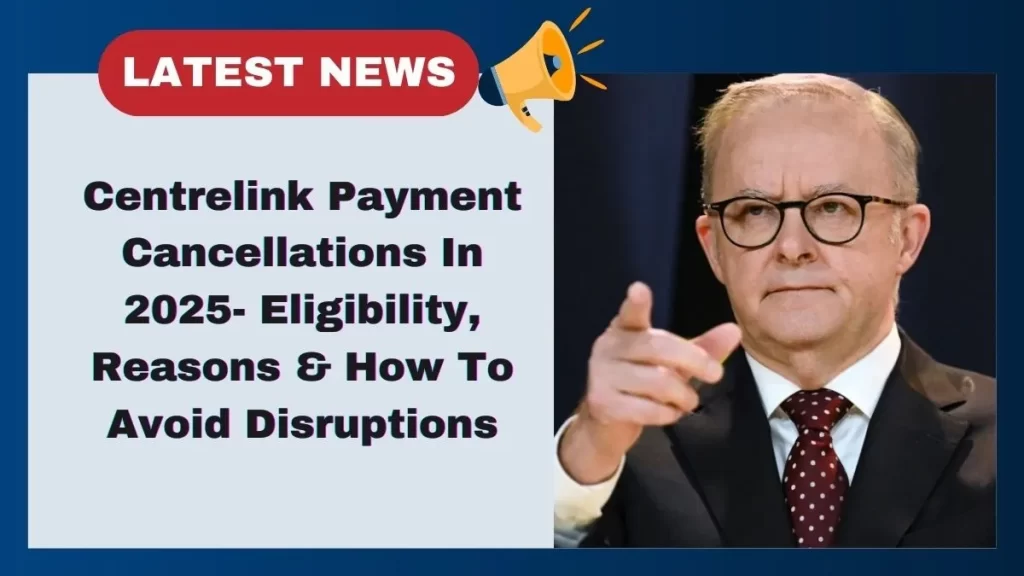Navigating the intricacies of Centrelink payments can be daunting, especially with the looming changes in 2025. As the Australian government updates its policies, understanding the eligibility criteria and the reasons behind potential payment cancellations becomes crucial for recipients. This article aims to provide clarity on these changes, helping individuals avoid disruptions to their financial support. With comprehensive insights and practical tips, you can ensure that your Centrelink payments remain uninterrupted. Let’s delve into the key aspects of Centrelink payment cancellations, their eligibility criteria, and actionable steps to maintain your benefits.
Payment Cancellations Overview
Understanding the landscape of Centrelink payment cancellations is essential for recipients. Cancellations can occur due to various factors, including failure to meet eligibility requirements or changes in personal circumstances. Staying informed about these factors will help individuals navigate their benefits more effectively.
Eligibility Criteria for Payments
To maintain eligibility for Centrelink payments, recipients must adhere to specific criteria. This includes meeting income and asset tests, fulfilling residency requirements, and actively participating in mutual obligations. Regularly reviewing and understanding these criteria is vital to avoid unintentional cancellations.
Common Reasons for Cancellations
Several common reasons can lead to the cancellation of Centrelink payments. These include failure to report income accurately, not attending scheduled appointments, or changes in personal circumstances that affect eligibility. Recognizing these reasons can help individuals take proactive measures to maintain their payments.
How to Avoid Payment Disruptions
Preventing payment disruptions involves taking several proactive steps. Recipients should ensure they report any changes in their circumstances promptly, keep accurate records of their income, and remain engaged with Centrelink requirements. Consistent communication with Centrelink can also help clarify any uncertainties.
Understanding Mutual Obligations
Mutual obligations are a critical component of Centrelink’s payment system. Recipients are often required to participate in job-seeking activities or training programs to continue receiving benefits. Understanding and fulfilling these obligations is essential for maintaining eligibility and avoiding cancellations.
| Reason for Cancellation | Impact on Payments | How to Avoid | Important Dates | Contact Information |
|---|---|---|---|---|
| Failure to Report Income | Immediate cancellation | Report changes timely | Monthly | Centrelink Contact |
| Missed Appointments | Potential cancellation | Set reminders | Weekly | Centrelink Online |
| Change in Personal Circumstances | Review eligibility | Notify Centrelink | As needed | Local Office |
| Non-compliance with Mutual Obligations | Payment suspension | Stay informed | Varies | Jobactive Provider |
Staying informed and proactive is essential for Centrelink recipients to avoid payment disruptions. By understanding eligibility criteria, common reasons for cancellations, and mutual obligations, individuals can better navigate the complexities of the system.
FAQs
What should I do if my Centrelink payment is canceled?
If your payment is canceled, you should immediately contact Centrelink to understand the reasons for the cancellation and inquire about the steps necessary to reinstate your payments.
How can I report changes in my circumstances to Centrelink?
You can report changes in your circumstances through the Centrelink online account, mobile app, or by visiting your local Centrelink office. It’s important to report changes as soon as they occur.
What are mutual obligations and how do they affect my payments?
Mutual obligations refer to the requirements you must fulfill to continue receiving payments, such as attending job interviews or training. Failing to meet these obligations can lead to payment suspensions or cancellations.
Can I appeal a Centrelink payment cancellation decision?
Yes, you can appeal a Centrelink decision regarding payment cancellations. You should follow the formal appeal process outlined by Centrelink, which typically involves requesting a review of the decision.


